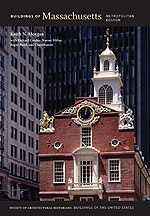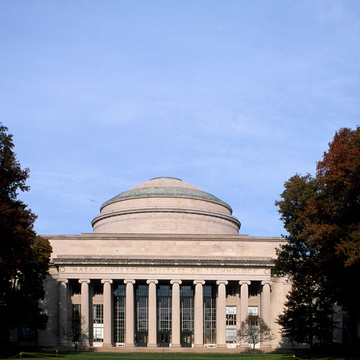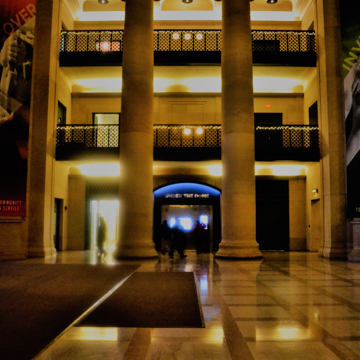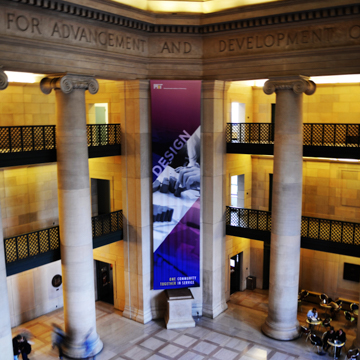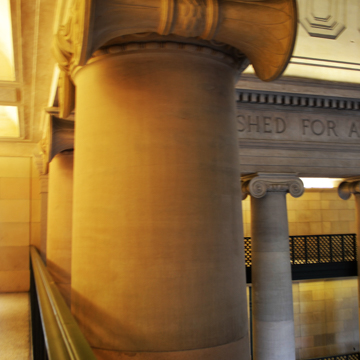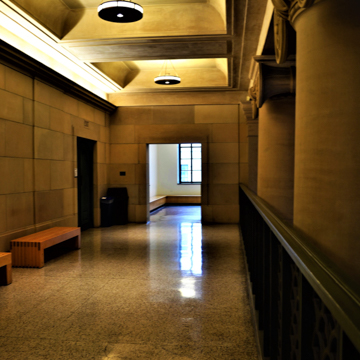You are here
Maclaurin (Bldgs. 3, 4, and 10) and Rogers (Bldgs. 7 and 7A) buildings
In 1916, President Richard Cockburn Maclaurin dedicated the Great Court complex of MIT, now named in his honor. A classical Beaux-Arts design, the Pantheon-domed central building is marked by a colossal Ionic portico with ten fluted columns, the whole forming a perfectly symmetrical courtyard (the Killian Court), fronting Memorial Drive on the Charles River. On the east and west projecting pavilions, Ionic columns and pilasters frame a grand two-story window. Prominently carved into the lintels are the names of great scientists: Newton on the east faces Darwin opposite. Architect William Welles Bosworth,
However, the main entrance of MIT is through the Rogers Building (1937, Building 7) on Massachusetts Avenue (rather than through the earlier portico on Killian Court), where a stately flight of steps leads to another monumental entrance and to another great domed space within (renovated in 2001). The Infinite Corridor, as it is informally called, stretches six hundred feet and joins various departments and galleries, forming the spine of a rectilinear though labyrinthine network. Posters and announcements and the constant traffic of students create a sense of energy and mission.
Gazing on this building, poet David McCord cited Wordsworth's equation for Newton: “The marble index of a mind forever/Voyaging through strange seas of thought, alone.”
Writing Credits
If SAH Archipedia has been useful to you, please consider supporting it.
SAH Archipedia tells the story of the United States through its buildings, landscapes, and cities. This freely available resource empowers the public with authoritative knowledge that deepens their understanding and appreciation of the built environment. But the Society of Architectural Historians, which created SAH Archipedia with University of Virginia Press, needs your support to maintain the high-caliber research, writing, photography, cartography, editing, design, and programming that make SAH Archipedia a trusted online resource available to all who value the history of place, heritage tourism, and learning.














